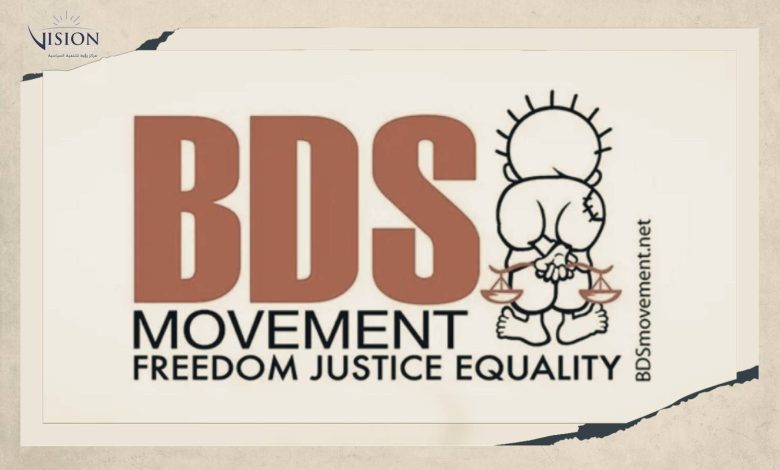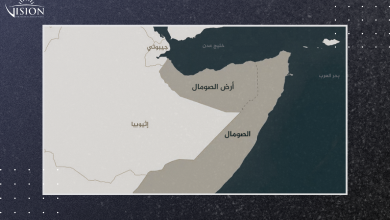The Expansion of the Boycott Movement Against Israeli Occupation Following the Gaza Massacre

Yousef Al-Jamal
On July 9, 2005, Palestinian civil society launched an appeal to organizations worldwide, urging them to engage in a comprehensive boycott of Israel, implement sanctions, and divest from Israeli interests—a campaign collectively known as the Boycott, Divestment, and Sanctions (BDS) movement. This call to action, grounded in the principles of international law, arose after the continued failure to establish a sovereign Palestinian state, a goal thwarted by Israel’s persistent colonial expansion and the systematic marginalization of large segments of the Palestinian people (BDS, 2005).
Initially supported by 171 Palestinian civil society organizations, the BDS movement articulated three core demands: (1) the termination of Israel’s military occupation of territories seized in 1967, along with the dismantling of settlements and the separation wall; (2) the assurance of equal rights for Palestinian citizens inside the green light, on par with those afforded to Jewish citizens; and (3) the implementation of United Nations Resolution 194, which enshrines the right of return for Palestinian refugees to their homes from which they were forcibly displaced (BDS, 2005).
The call for a boycott was unanimously endorsed by all Palestinian factions, uniting their common principles and aspirations. It resonated deeply with Palestinians across diverse geographies, gaining substantial backing from institutions both within the occupied territories and in the diaspora, including strong support from national and Islamic forces. The inception of the BDS movement represented a pivotal shift in the Palestinian struggle, altering its leadership, strategy, and methods. It marked a departure from decades where leadership was largely in the hands of elite families and traditional political figures, paving the way for a new generation of activists on the ground who advocated for innovative approaches and solutions to address the Palestinian cause and confront historical injustices inflicted upon their people.
The ethos of the BDS campaign draws a parallel with the anti-apartheid struggle that dismantled the segregationist regime in South Africa in the early 1990s. Advocates of the boycott call for sanctions against Israel, condemning it as an apartheid state that perpetuates racial discrimination, settler-colonialism, ethnic cleansing, violence, and land appropriation against the Palestinian people.
Boycott, Divestment, and Sanctions (BDS)
The BDS call has garnered widespread responses from various entities, including individuals such as the renowned physicist Stephen Hawking, academic institutions like the University of California system, religious organizations such as the Presbyterian Church, labor unions like the Irish Trade Union Congress, Scandinavian credit funds, and even national governments, most notably the government of South Africa. The campaign has seen a broadening of its appeal, gaining acceptance among ordinary Western citizens. Global media outlets, including the New York Times, have reported on the achievements of the BDS movement, regularly featuring commentary and articles by its proponents, such as Omar Barghouti, a prominent figure associated with the campaign. In his book Boycott, Divestment, Sanctions: The Global Struggle for Palestinian Rights, Barghouti, a member of the BDS National Committee, highlights the unprecedented 2004 decision of the Presbyterian Church (USA) General Assembly to initiate a strategic divestment process from companies operating in “Israel” (Barghouti, 2011).
The BDS movement is characterized by its decentralized structure, allowing supporters in each country the autonomy to choose which products and companies to boycott, and to encourage others to do the same, provided that the companies in question are Israeli or international entities complicit in supporting the occupation. This decentralized approach makes it easier for activists to communicate the companies’ involvement to the public, facilitating the acceptance of boycott campaigns. With the expansion of BDS activities and its growing international impact, the movement has also launched appeals through its website to mobilize and gather donations to sustain its increasing operations.
The National Committee of BDS, headquartered in Palestine, oversees the movement’s efforts and coordinates with organizations worldwide, aiming to streamline collective efforts, draw from the successes and strategies of other groups, and build upon them. Palestinians in the diaspora play a vital role in the movement, forming alliances with student unions, churches, labor organizations, and even Jewish groups advocating for the end of the occupation, such as Jewish Voice for Peace. Additionally, Europeans, Americans of Asian, Latin American, and African descent, and other activists have become active supporters, with the movement gaining backing from human rights organizations, women’s rights advocates, and indigenous communities (BDS, n.a.).
The forms of boycott under BDS are diverse, ranging from economic boycotts, divestment initiatives, and sanctions to academic, sports, and cultural boycotts. The campaigns target a range of international and Israeli companies implicated in violations of Palestinian rights and directly contributing to the occupation. Notable examples include: Veolia/Alstom, French companies that operate the light rail connecting parts of Jerusalem through the Shuafat refugee camp (BDS, 2009); G4S, a British-Danish security company that provides services to checkpoints and the separation wall and manages Israel’s prison network, which detains thousands of Palestinian prisoners (BDS, 2023); Mekorot, the state-owned water company involved in the appropriation of Palestinian natural resources, denying them access to their water in the West Bank (BDS, 2014); Elbit Systems, a defense company owned by the Israeli military that supplies surveillance drones and services for the apartheid wall (BDS, 2022); Caterpillar, a U.S.-based company headquartered in California, which provides heavy machinery used for demolishing Palestinian homes and uprooting their crops (BDS, 2009); Hewlett Packard (HP), a company that supplies the Israeli military with computer systems that assist in the racial profiling of Palestinians at checkpoints, and provides services to government offices, including those of Netanyahu and Smotrich, responsible for war crimes during the Gaza conflict (BDS, 2023); Ahava, an Israeli company producing cosmetics from the Dead Sea, exploiting Palestinian natural resources (BDS, 2011); and SodaStream, a company that manufactures carbonated beverages and machines for making fizzy drinks, with a factory located in the Ma’ale Adumim settlement (BDS, 2018).
The boycott also extends to the academic and cultural sectors, calling for the cessation of academic collaboration with Israeli institutions and scholars, as well as refraining from participating in joint research projects with them. These calls for academic and cultural boycotts have gained considerable traction, with hundreds of academics and artists responding positively by refusing to attend academic conferences or perform in concerts in Israel. Notable figures such as Stephen Hawking, Alice Walker, and Roger Waters are among those who have supported the boycott. In the United States and Europe, several academic unions have voted in favor of resolutions endorsing the academic and cultural boycott of Israel. Examples include the decision by the UK’s National Union of Students, which represents seven million students, to adopt the BDS call, marking a significant blow to the occupation, as well as the resolution passed by the American Studies Association at the end of last year. Students have played a vital role in leading the BDS movement within universities, institutes, and colleges. Ali Abunimah, one of the prominent advocates of the BDS movement in the United States, highlighted this by stating: “If we lose the universities, we lose the United States.” (Abunimah, 2014).
The BDS movement has expanded horizontally beyond all expectations, reaching countries such as South Korea and New Zealand. Furthermore, the presence of hundreds of thousands of people of Palestinian descent in Latin America has recently bolstered the movement, particularly against companies like Mekorot and Elbit Systems. After decades of marginalization, Palestinians in Latin America, who were often viewed as “cultural ambassadors,” have begun reclaiming their leadership role in advocating for the Palestinian cause by actively engaging in the BDS movement (BDS, 2024).
Boycott campaigns are concentrated mainly in Europe and North America, alongside some initiatives and campaigns in Latin America and the Arab world. The BDS movement could become more effective through further activation in the Arab world and Latin America, where hundreds of thousands of Palestinians with substantial political and economic influence reside, in countries such as Chile, Brazil, Argentina, and Honduras.
The Impact of the Boycott Movement on the Israeli
Israel’s response to the BDS movement has unfolded in several stages. Initially, the Israeli authorities denied that the boycott had any impact on the Israeli economy. However, this stance underwent a substantial, albeit unannounced, change in 2010, when participants at the General Assembly of North American Jewish Communities pointed out that the BDS movement posed the second greatest threat to Israel’s existence, following “a nuclear Iran” (Virgilio, 2017). Over time, Israeli perspectives on the boycott shifted, leading officials and institutions to issue public statements, reports, and programs aimed at countering the BDS movement. These efforts included accusations that its supporters were engaging in anti-Semitism, alongside initiatives to improve Israel’s international image.
In a statement by former Israeli Finance Minister Yair Lapid, he noted that the European boycott costs “Israel” $5.2 billion annually, translating to a loss of 10,000 jobs. The Israeli Ministry of Finance further confirmed that the boycott movement poses the greatest threat to the country’s economy (Khubaisa, 2014). The French company Alstom also incurred losses amounting to tens of billions due to the boycott campaign. In 2010, Alstom lost a $10 billion contract for the second phase of the Haramain High-Speed Rail project in Saudi Arabia. Similarly, Veolia incurred a loss of $23.97 billion and eventually decided to sell its stake in the Jerusalem light rail. Reports also indicated that Alstom is in advanced stages of selling its share in the light rail project in Jerusalem (Ireland Palestine Solidarity Campaign, n.d.).
The boycott campaigns against G4S resulted in the loss of contracts worth hundreds of millions. The Bill & Melinda Gates Foundation, based in Seattle, announced the sale of its $184 million stake in the company. Additionally, G4S declared that it did not intend to renew its contract with its Israeli counterpart, which was set to expire in December 2015. The Israeli company Ahava closed its store in the United Kingdom and announced plans to relocate its factory from the Dead Sea settlements to within Israel. SodaStream also stated that it would shut down its factory in “Ma’ale Adumim” by 2015 after its shares plummeted by 58%, which indeed happened (Martin, 2014).
The BDS movement recorded over 250 victories in the United States alone, including decisions on university divestments, cultural boycotts, and corporate policy changes. This has increased corporate accountability, with major companies facing public scrutiny and altering their practices due to boycott pressures. Overall, the recent campaigns by the BDS movement have significantly demonstrated their impact on Israel’s economy, academic institutions, cultural exchanges, and political discourse, underscoring the movement’s influence and expansive reach (US Campaign for Palestinian Rights, 2022).
Politically, the BDS movement has increased Israel’s isolation, making Israeli leaders frequent targets of boycott supporters. It is rare for Israeli officials to deliver speeches or attend events without encountering opposition from activists supporting the Palestinian cause. For instance, a speech by Netanyahu in Congress was interrupted by a Jewish American activist from the “Code Pink” organization who had previously visited Gaza, and a lecture by Ehud Olmert at the University of Chicago was disrupted by a group of Palestinian activists (the Palestinian community in Chicago is estimated to number 80,000). The Reut Institute, an Israeli think tank, described the BDS movement as an existential threat to Israel. In 2011, the Israeli newspaper Haaretz revealed that the Israeli army had established an intelligence unit aimed at gathering information on right-wing organizations perceived as seeking to delegitimize Israel (Abunimah, 2014).
The Israeli Ministry of Foreign Affairs stated that, “Alongside the missile threats from Iran, Hezbollah, and Hamas, the threat of delegitimization also emerges as a significant danger.” In response, the Israeli government launched an international campaign aimed at improving Israel’s global image, allocating 100 million shekels (approximately $27 million) for this purpose. Separate meetings were held by Netanyahu and the Knesset to discuss strategies for countering the growing boycott movement. In her report, American activist Annie Robbins pointed out that AIPAC (the American Israel Public Affairs Committee) had backed a bill introduced to Congress in January 2015, which sought to condition any future trade agreements with the European Union on the latter’s rejection of the boycott movement (Robins, 2015). In a similar vein, the Israeli government signed an agreement with the Canadian government aimed at combating the boycott movement, while the establishment of the “Working Group for Israel” in the United States was announced, with an initial funding of $6 million to reinforce the front against the boycott campaign (Lungen, 2015).
The boycott movement has achieved tangible successes on the ground, surpassing the achievements of similar campaigns over decades. It is anticipated that the movement will continue to secure further victories in the coming years, compelling more international companies to withdraw from Israel, which would cost the Israeli economy billions of dollars, while also exposing the true image of Israel on a global scale. Simply put, Israel cannot justify to the average Western citizen its opposition to granting equal rights to Palestinians, nor can it defend its policies of land confiscation, settlement construction, and the building of walls and barriers. The language, stated objectives, and methods of struggle employed by the boycott movement have the potential to exhaust Israel and force a shift in its policies towards Palestinians, especially as support for the movement reaches official levels, such as the European Union’s decision to label settlement products and South Africa’s decision to halt the sale of settlement goods in its markets.
The genocide in Gaza following October 2023 has reinvigorated the boycott movement on an unprecedented global scale. Boycott calls worldwide have targeted companies such as McDonald’s and Starbucks, which have suffered losses amounting to billions of dollars due to their support for Israel. Some companies, like Coca-Cola, have resorted to changing the external design of their products to avoid the boycott, while others, such as McDonald’s, have attempted to challenge the boycott legally. An example of this is the case involving Dr. Nazari Ismail, the head of the boycott movement in Malaysia, who won a lawsuit brought against him by the local company holding the rights to McDonald’s in Malaysia. The company had accused him and the movement of causing financial losses (Free Malaysia Today, 2024).
Diaspora Leading the Boycott Movement
Observers of the achievements of the boycott movement in North America and Europe will notice the increasing involvement of members of the Palestinian diaspora, who are not only participating in the campaigns but also taking on leadership roles. An example of this leadership is seen in the activism of Rama Kadeemi, a member of the American Campaign to End the Israeli Occupation of Palestinian Territories.
The Palestinian activist Shireen Damrah successfully led a campaign in 2011 that resulted in the removal of Israeli hummus products from the shelves of her university cafeteria (Gosztola, 2011). Likewise, Malaka Shwaikh, a Palestinian from Gaza, played a pivotal role in passing a resolution supporting the boycott of Israel at the University of Sheffield in the UK, where she served as the president of the student union at the time (Shwaikh & Gould, 2020). Another example is Sandra Tamari, a Palestinian activist who helped pass a resolution to boycott American companies involved in the occupation in St. Louis, Missouri (American Friends Service Committee, 2014).
In a similar context, Palestinian academic Saad Atshan persuaded his colleagues in the Peace and Justice Studies Association, which operates in both the United States and Canada, to pass a resolution endorsing the boycott of Israeli academic institutions. Due to their growing role in the boycott movement and the increased awareness in the United States about Israel’s violations, Palestinian activists, especially those involved in the boycott campaigns, have faced various forms of harassment. Some notable examples include the case of activist Rasmea Odeh, who was prosecuted in Detroit’s federal court due to confessions extracted under torture in Israeli prisons. After several legal proceedings, Odeh was deported from the United States, and her U.S. citizenship was revoked (Palestine Legal, 2015).
In another incident, the University of Chicago terminated the contract of Palestinian academic Steven Salaita over “tweets” criticizing the Israeli prime minister and the violent aggression on Gaza. Salaita filed a lawsuit against the university, ultimately reaching a settlement that restored his rights after the institution breached his contract and violated his constitutional rights. Additionally, the number of Palestinian Americans denied entry to the West Bank has increased, including figures such as the Palestinian writer Susan Abulhawa and activist Nerdeen Kiswani, who was attacked during an event organized by the Jewish community in New York to promote American Jewish immigration to Israel (Center for Constitutional Rights, 2015). During the genocide in Gaza, students at the university organized a student camp demanding that their institution sever ties with Israeli universities and support Palestinian students and institutions (Keller, Preziosi, Tweedie, & O’Keeffe, 2024).
It is noteworthy that the activism of the Palestinian diaspora in the United States surpasses that of the Palestinian communities in Latin America. Several factors contribute to this difference: the political support that Latin American governments extend to Palestine, the absence of a Zionist lobby as influential as that in the United States, the complete integration of the Palestinian diaspora into Latin American societies, and the margin of freedom in the U.S. that allows civil society organizations to operate. Additionally, the overt U.S. support for Israel, along with the presence of strong networks and institutions uniting the Palestinian diaspora in the United States, contrasts with the situation in Latin America.
The Latest Boycott Campaigns and Successes Following the Gaza Genocide
The campaigns led by the Boycott, Divestment, and Sanctions (BDS) movement over recent years have had significant impacts across various sectors, from corporate environments to academic and cultural fields. Efforts to boycott companies and divest investments by the BDS movement have prompted numerous public statements of discontent from major corporations, attesting to the movement’s effectiveness. The academic boycott has also gained momentum, as institutions worldwide have refrained from collaborating with Israeli universities and research initiatives, thereby raising awareness and exerting pressure on the academic community within Israel. Additionally, the active boycott of Israeli products by consumers and retailers, resulting in the removal of these goods from store shelves, has had economic repercussions for companies perceived as complicit in Israeli actions.
One illustrative example was the targeting of McDonald’s in a social media campaign endorsed by the BDS movement, calling for boycotts, divestments, and sanctions in November 2023. The campaign was initiated after an Israeli franchise of the company pledged to provide free meals to Israeli soldiers. In an email statement, McDonald’s clarified that it does not support any government involved in the conflict, noting that the Israeli branch acted independently without the company’s authorization. The corporation expressed its dismay at the “misinformation and inaccurate reports concerning our stance in response to the Middle East conflict.” By March 2024, the boycott campaign against McDonald’s had led to a $7 billion loss. By May 2024, Starbucks’ shares had dropped by 12% as a result of international boycott campaigns linking the company to the genocide in Gaza and its support for Israel (Al Jazeera, 2024).
The United Nations High Commissioner for Human Rights removed General Mills and 14 other business entities from the blacklist of companies identified as operating within Israeli settlements in the West Bank, citing that these companies had either ceased or no longer engaged in activities within the occupied Palestinian territories. General Mills, known for brands such as Honey Nut Cheerios and Haagen-Dazs, announced plans to sell its stake in a factory near East Jerusalem, asserting that the decision was not politically motivated (Pierre, 2023). Similarly, Spanish clothing giant Inditex, owner of brands like Pull & Bear, Bershka, Stradivarius, Massimo Dutti, and Zara, declared that it would “temporarily” close its 84 stores in “Israel” until further notice following the outbreak of the war (The Times of Israel, 2023).
Cultural initiatives and campus campaigns have played a significant role in bolstering the boycott movement. The cultural boycott has seen artists, musicians, and cultural figures cancel their performances in Israel, expressing solidarity with Palestinians and amplifying the message of the boycott on a global scale. On university campuses, student groups and faculty members have organized boycott campaigns, advocating for divestment from companies linked to alleged Israeli violations of international law.
The global impact of the boycott movement has been profound, increasing awareness of the Palestinian situation and challenging prevailing narratives. By targeting corporations and institutions, the movement has exerted economic pressure on Israel, compelling companies to reconsider their involvement in the region. Politically, the boycott has influenced public discourse, prompting governments and international bodies to adopt a more critical stance toward Israel’s actions.
Conclusion
The Boycott, Divestment, and Sanctions (BDS) movement has achieved tangible accomplishments that have become a significant concern for both Israeli and international policymakers. The success of the boycott movement is attributed to its reliance on grassroots support and institutions, rather than politicians, and its ability to craft goals and strategies that have resonated with and succeeded within Western societies.
Israel, despite its formidable influence, media machinery, and supporting institutions, has struggled to counter the boycott movement effectively. This is because the movement’s strength lies in its appeal to grassroots organizations such as student unions, labor groups, religious institutions, and human rights associations. The call for equal rights for Palestinians and the end of occupation is a message that Israel and its supporters cannot easily refute or justify in the face of international scrutiny.
The boycott movement challenges the legitimacy of Israel, a concern acutely felt by Israeli leaders, as its proponents advocate for a one-state solution, either in the form of a democratic secular state or a binational state. Fundamentally, the movement seeks to dismantle the Israeli system, portraying it as a regime that practices discrimination against Palestinians, including those who are Israeli citizens. The comprehensive platform and demands of the boycott movement enjoy widespread acceptance among Palestinians across all regions of their diaspora, signaling a hopeful and successful future for the movement in the coming years.
The strategy of Palestinians, both as individuals and groups within the homeland, must be rooted in close collaboration with civil society organizations abroad, whose influence continues to grow day by day. Success in this endeavor cannot be achieved without coordination with the Palestinian diaspora, as well as ethnic groups including African Americans, Asians, Latin Americans, and advocates for women’s and human rights. Strengthening efforts in this direction would serve to expose Israel’s discriminatory practices against Palestinians, expand the reach of popular influence and solidarity, and ultimately shape the future actions of Western policymakers.
Recommendations
- Strengthen engagement with Palestinian communities abroad and actively participate in the boycott movement across all levels. Establish communication with supporters of the Palestinian cause from diverse backgrounds and perspectives.
- Enhance relationships with churches, student unions, labor unions, academics, artists, media professionals, and young activists who support the boycott movement. This includes forging alliances across racial and ethnic lines, encompassing Black, Asian, Latinx, White communities, and Indigenous groups.
- Promote the discussion of the one-state solution within Palestinian political circles, assessing its feasibility, implementation possibilities, and the position that should be adopted regarding this concept.
- Build on the political achievements already secured by the boycott movement and use them as a foundation for further progress.
- Send messages of support from within Palestine to boycott advocates abroad, facilitated by youth and human rights groups.
- Actively join the boycott movement rather than remaining passive observers, especially given its demonstrated effectiveness.
- Establish a dedicated unit focused on the boycott movement to monitor recent accomplishments and maintain connections with activist organizations globally.
- Leverage the heightened awareness that emerged from the Gaza genocide to spread understanding of the Palestinian issue and isolate Israel on the international stage. This can be achieved by globally activating the boycott as a conduit for promoting divestment and imposing international sanctions on Israel.





